Tashkent PLUS-Forum “FinTech, Banks and Retail”. Outcomes of the Key Event in Central Asia
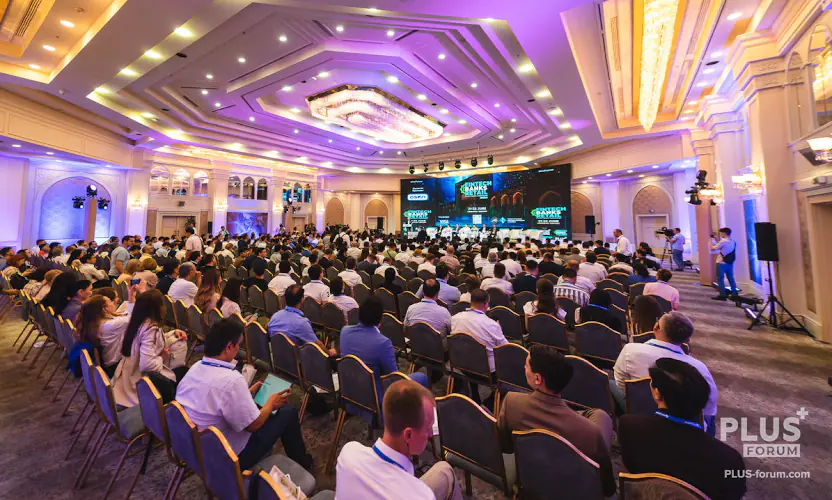
Compared to events of previous years, both conference and exhibition parts of the Forum have gained a larger scale. This year, 2500+ applications for participation have been submitted, which equals to a 40% increase in the number of delegates compared to the successful PLUS-Forum 2022, as well as more than 100 exhibitors fr om 31 countries.
More than 110 key speakers, including experts fr om the banking and financial industry, regulators, IT, retailers and others spoke at the largest forum in Central Asia.
A highly topical program of conference sessions covered aspects of further development of fintech, banking, eGOV, Islamic finance, CBDC, cryptocurrencies, Blockchain, ECOM, IT, cybersecurity, remote identification, SMEs, retail, and etc.
The panel sessions covered actual topics, including ways to turn banking into Finance as a Service, Islamic finance, remote identification as a must-have element of modern society, big data and other themes.
Visa acted as the title sponsor.
On the first day of the conference, more than 50 speakers addressed the Forum. The experts shared their experience in developing the key areas of fintech and retail in Uzbekistan and Central Asian states, as well as in selecting promising formats.
Session 1. Further digitalization as a global banking trend
Uzbekistan is currently at the stage of investing in fintech. Abdulla Abdukadirov, Deputy General Director of the Agency for Strategic Reforms under the President of Uzbekistan, spoke about this at the panel session “Further digitalization as a global banking trend".
The speaker noted, that despite the fact that last year Uzbekistan adopted the law “On electronic commerce” and other legal acts, the current legislative base in Uzbekistan still lags slightly behind. Today, the Government of Uzbekistan is developing a draft law on fintech, which would include aspects of digital banking, regulation of crypto-banking and cryptocurrency, support to be provided to startup initiators in fintech, as well as scaling of successful business ventures.
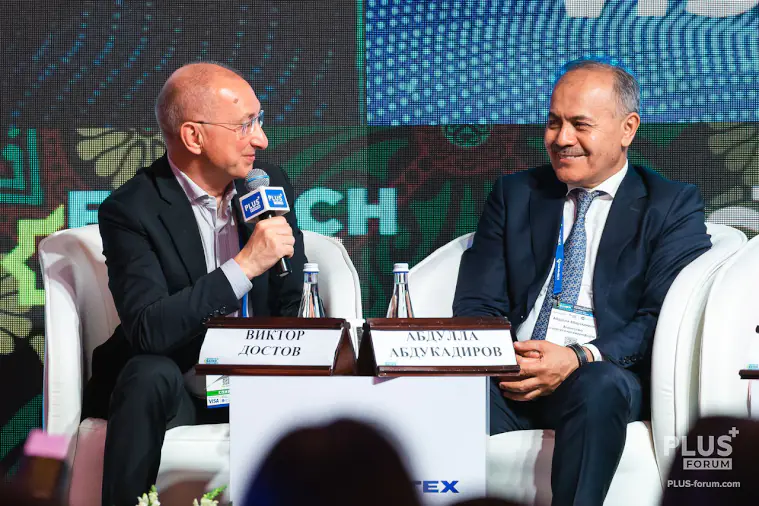
Uzbekistan is currently experiencing intense development of financial technologies, noted Victor Dostov, Chairman of the Electronic Money and Remittance Association (AED). The expert reviewed the main trends in the evolution of the financial ecosystem. He claims, that banks are no longer competing in terms of banking products, and customer loyalty tend to decrease amidst nearly identical offers. At the same time, the government is no longer a passive observer and is currently involved in developing market regulations.
In the new environment, ecosystem players are winning. At the same time, Victor Dostov is concerned, that banks are gradually losing their digital advantages, giving way to non-banks, which are entering the financial segment.
The expert has highlighted another trend: large manufacturers are moving away from online retail and tend to practice direct deliveries to customers. In his opinion, banks may find themselves in a similar situation, they run the risk of being pressed out of the market by ecosystem structures and such instruments as the e-ruble.
At the same time, the general position of banks today is still strong, so the main thing for them is not to lose the initiative.
Cristina Doros, VP and Regional Manager of Visa in Central Asia and Azerbaijan, summed up the results of Visa’s thirty years’ operations in Uzbekistan and outlined the future prospects of Uzbekistan's digital economy.
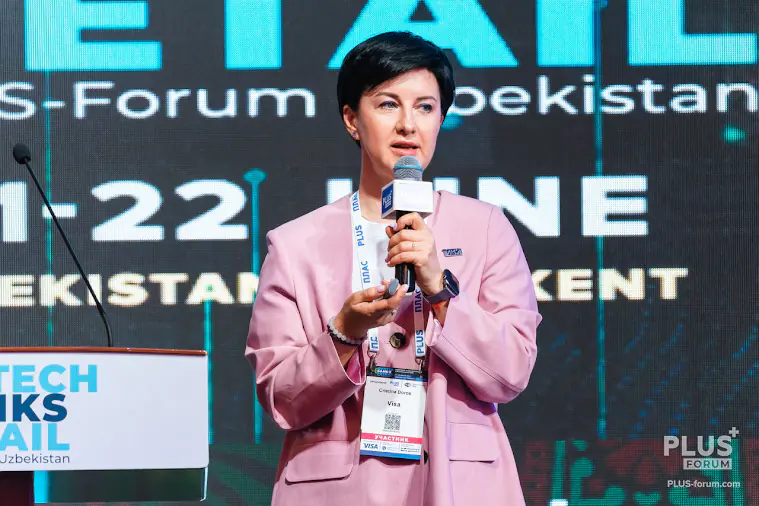
In her speech, she listed the main milestones of Visa's activities in Uzbekistan. Launch of e-commerce services on Visa cards, Solfy installment card based on Visa Platinum and presentation of credit cards with interest-free period issued by Uzbekpromstroybank in 2022 have been the major projects of recent years. In the same year, Visa Direct, a global service of transfers at phone number was launched. The service allows making money transfers between individuals faster and safer. At the same time, over the past five years, Visa has invested over $ 9 billion in digital security.
Another trend is that young people are still actively using Buy Now Pay Later system (BNPL): 36% of Generation Z and 41% of Millennials.
A notable event of PLUS-Forum "Fintech, Banks and Retail" was the signing of an agreement between AKB Microcreditbank and Visa, in which Cristina Doros took part.
According to Ikram Dzhumaniyazov, Deputy Chairman of JSCB “Microcreditbank” this agreement will allow to increase portfolio of client offers due to Visa products.
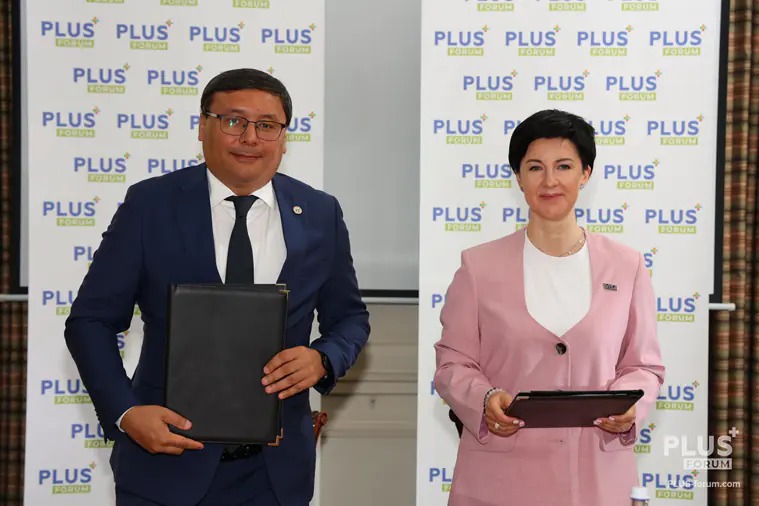
At the same time, the event was also marked by a number of other sessions with important public signings. Thus, international company CloudPayments, the Bronze Sponsor of the PLUS-Forum “FinTech, Banking and Retail”, signed cooperation agreements with Broniboy international delivery service and Dodo Pizza international pizzeria chain. From now on, Broniboy and Dodo Pizza, including the website of Dodo Pizza, will accept payment by cards UzCard, Humo, Visa and Mastercard by online acquiring service CloudPayments in mobile applications.
In its turn, the largest commercial bank of Uzbekistan - JSCB “Kapitalbank” signed a Memorandum of Cooperation with BS/2, the main sponsor of PLUS-Forum. According to the document, clients will receive a convenient access to financial services thanks to the expansion of modern ATMs fleet.
Central Asia has become an arena of competition between banks and non-banking structures. This was the conclusion of Jahan Shamsiev, Head of Operations of the European Bank for Reconstruction and Development (EBRD) in the financial sector in Central Asia. The expert has reviewed the key trends of the global banking market, the main drivers of which were the rapid internet development and the greatest ever freedom of choice for the consumer in the history of the market. Against this background, banks are now looking for solutions to win back their market share from fintech. Thus, Central Asia has become one of the most active competition arenas between banks and non-banks.
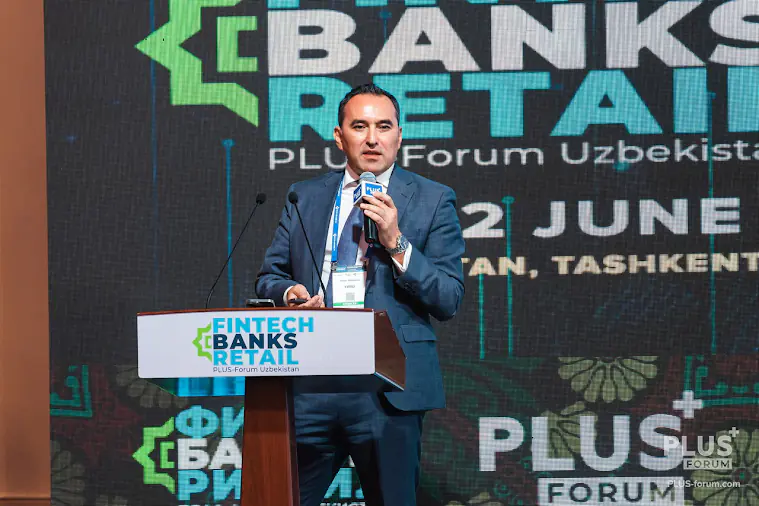
Aidos Zhumagulov, Advisor to the Chairman of Freedom Bank's Board of Directors, shared his experience in implementing digital mortgage and digital car loans. The speaker noted that initially, when forming its business strategy, the bank paid special attention to state services in terms of using them for product development. It was GovTech that the bank saw a huge potential in. At the same time, it was clear that many banks had inefficient processes related to mortgages and car loans. A competent digital organization allowed Freedom Bank to quickly gain a significant share of the market.

Speaking of digital mortgages, the expert described their advantages, in particular, it is possible to assess the value of an apartment literally in a second with the help of this service.
Aydos Zhumagulov also mentioned digital car loans for used autos. He noted that during implementation of the service, the bank designed a three-component model, which allows for the to assess the buyer, seller and the car itself, to find out how long the car in the market, whether it was in an accident, and other factors, with no need to open the hood. “Today, Big Data allows more accurate decision-making than a human,” the speaker stated. Summing up his speech, Aidos Zhumagulov noted that digitalization allows to receive the answer the key question: not wh ere to get a client, but how ready the bank is to accept and provide service to him. Today, largely due to digital products, Freedom Bank's assets are growing.
Session 2. Payment Methods. Best business cases of retail banking
Transition to digital payments is giving a new impetus to the economy of Uzbekistan. This is what Elena Novoselova, CEO of FINIX YnP is sure of. The expert made a point that the market of Uzbekistan has a number of payment systems. The next trend will be the consolidation of market participants, which will require a certain restructuring at infrastructural, technological and tariff levels. Market consolidation will also require certain efforts from the regulator in the regulation of tariffs, etc. At the same time, the possible increase in tariffs for acquiring services, contrary to expectations, will have a positive impact on the retail development in the country. This step would force retailers to objectively assess their costs of servicing cash-flow cycles. The increased revenues of acquirer banks are expected to allow them to “fully create a transactional glue to attract customers”.
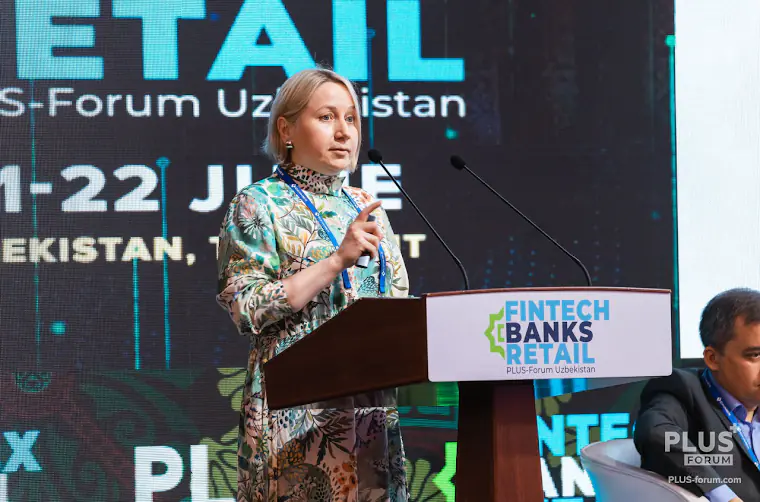
Session 2A. Development trajectories of banking market of Uzbekistan. Perspective solutions. Digitalization of SMB
The sales model of business cards has changed due to the entry of fintech and neobanks, believes Anna Tikhonova, Senior Director of Business Solutions CEMEA, Visa. In her report, she spoke about the potential of business cards development in Uzbekistan. The speaker noted that Uzbekistan's market is untapped and prospective. She also explained in detail the main advantages of business cards for SMEs.
“There is an active transition to cashless economy in Uzbekistan, this opens additional opportunities for SME clients,” Tikhonova noted. Over 1.1 mln SMEs are currently registered in Uzbekistan.
She also mentioned, that when starting to issue business cards, any limits and restrictions are always set and agreed upon with Visa Risk Service, which protects against illegitimate use. Any payment is made according to the highest security standards with advanced data protection technologies.
In her conclusions, the expert noted that banks have great opportunities for revenue growth in the SME segment, provided they build a quality product offering. In addition to traditional financial services, SME clients expect simplicity, convenience and assistance with business management. The prerequisites of a good customer experience include familiar card products, speed of issuance and easy use.
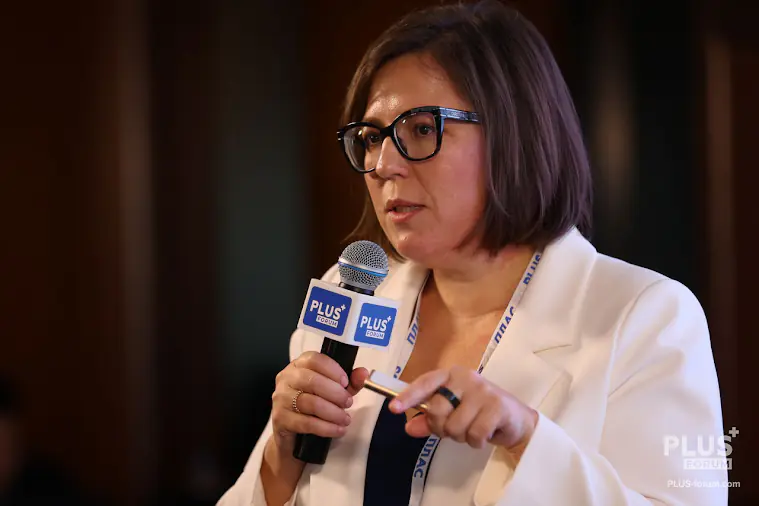
Session 3. From cash circulation to payments and banking. ATM and POS terminal networks. Banking self-service.
Cash withdrawals via retail and service outlets is not an alternative to cash dispensers, noted independent expert Svetlana Iglinskaya. Analyzing the practice and prospects a popular service of cash withdrawal at cash desks of retail outlets, the speaker made a point, that it is relevant for people in both remote areas and cities.
The expert reminded that this widespread practice implies cash withdrawals only during a purchase. At that, the service should not be positioned as an alternative to ATMs. The service is rather designed to further convince the mass consumer in the availability of cash and the lack of need to withdraw it at the first opportunity “just in case”.
Session 3A. Security. Cyber threats, social engineering and other topical challenges
Nursultan Aripov, Chief Expert, Information Security and Protection Department, Central Bank of Uzbekistan, presented his report entitled “Cybersecurity in the era of digitalization: challenges, modern types of fraud and protection methods”.
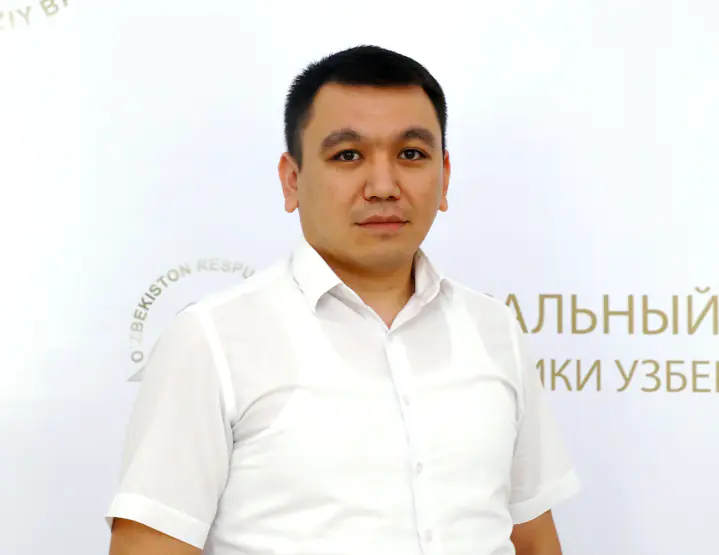
Iskandar Aisaev, Head of Laboratory for Hardware Facilities Testing “State Unitary Enterprise Cyber Security Center” specified key problems of cybersecurity. The expert singled out four main security threats in cyberspace. First of all, not only individuals, but also organizations and states are exposed to attacks. Cyber-attacks are difficult to detect and stop, as well as to find their initiators, as cyberspace is subject to different laws and various jurisdictions. In addition, the level of development of cyber technologies does not correspond to the preparedness of users for such threats, from unwillingness to apply complex passwords to inability to use antivirus programs. According to the expert, the fourth problem is the lack of well-trained cybersecurity specialists.
It is not surprising that the human factor has become a reason for 90% of cyber incidents. The researcher claims, that it is easier and cheaper for swindlers to take advantage of inattention, ignorance or negligence than to try to circumvent advanced software.
Aziz Kayumov, Head of Strategic Development Department, Republican Telecom Network Management Center of Uzbekistan, spoke about subscriber event analysis and management system. He explained how the pre-emptive system against financial fraudsters works. The first step is observation of suspicious activity of a subscriber in the network. Over 25 types of incidents can be referred to such attention-grabbing activity, such as simultaneous change of a number and a change of SIM card by a subscriber or a dynamic change of location, when in a minute a subscriber finds himself in Samarkand instead of Tashkent. The second stage is the transfer of information about such a subscriber to financial organizations. At the third stage, the received information is processed, and the subscriber caught in the antifraud system is placed under supervision.

Session 4. Payment business. Development of infrastructure
Uzbekistan's market showed a two-fold increase in the volume of non-cash payments, according to Djamshid Usmanov, Deputy Director of the Payment Systems Department of the Central Bank of Uzbekistan. According to the expert, the population of Uzbekistan is 36 million people, 75% of them are covered by banking services, i.e. have bank accounts. As of today, 37.5 million payment cards are in circulation in the country, 6.2 million of which are the products of international payment systems.
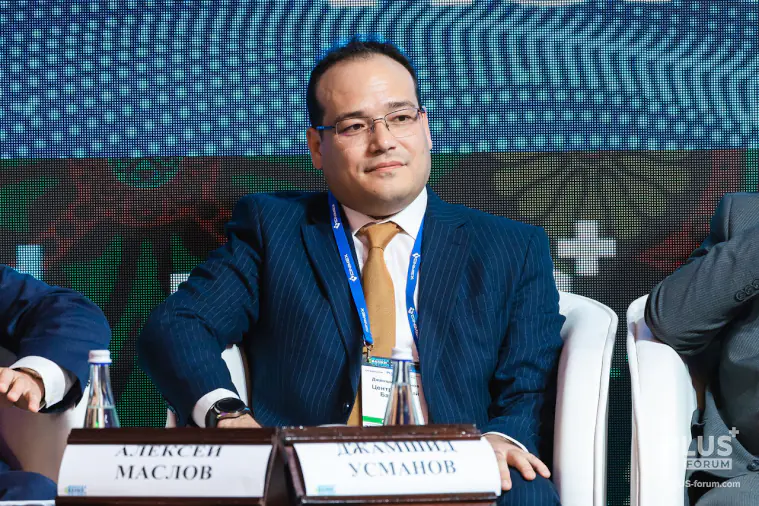
Meanwhile, the previous year showed an almost two-fold increase in the volume of non-cash payments as compared to 2021.
According to Usmanov, the present objectives of Central Bank of Uzbekistan include coordination of public activity on improving financial literacy, further promotion of non-cash payments and attracting global operators of payment services.
HUMO payment system expands international cooperation in Central Asia. This is the opinions of Shuhratbek Kurbanov, Director of HUMO Payment System. According to the speaker, the partners agreed with ELKART National Payment System on joint acquiring. From now on, the citizens of Uzbekistan and Kyrgyzstan visiting neighboring republics have an opportunity to pay with their cards just like at home, without additional commissions.
HUMO has recently reached a similar agreement with a bank in Kazakhstan.
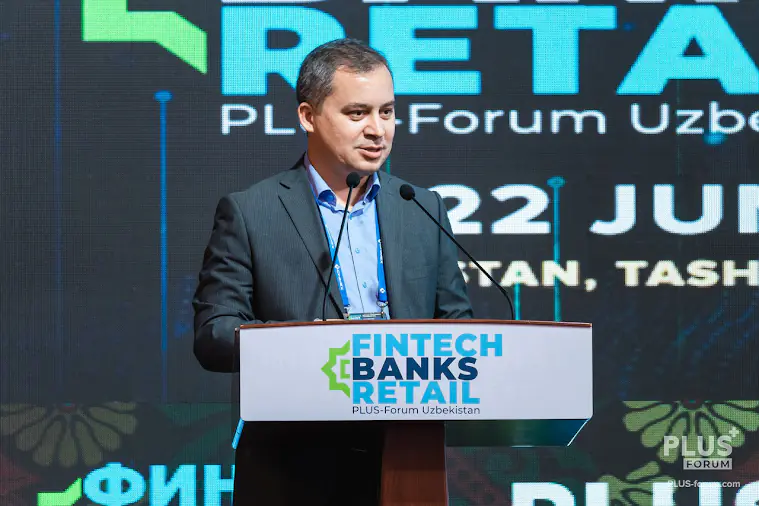
The step towards a single QR code has been made, noted Kirill Palchun, Head of Money Transfer and Payments System Stream, MTS. The expert reviewed the short history of contactless payments and noted that even two years ago the share of Google Pay and Apple Pay services was already up to 40% at the Russian market. In his opinion, the market will continue migrating interbank payments to different payment services.
In this case, QR-code payments occupy have a special place. Thus, in Armenia, Kyrgyzstan and Uzbekistan, regulators are already considering introduction of a single payment QR code. In their turn, several banks are planning to support at least two QR payment standards in their mobile applications.
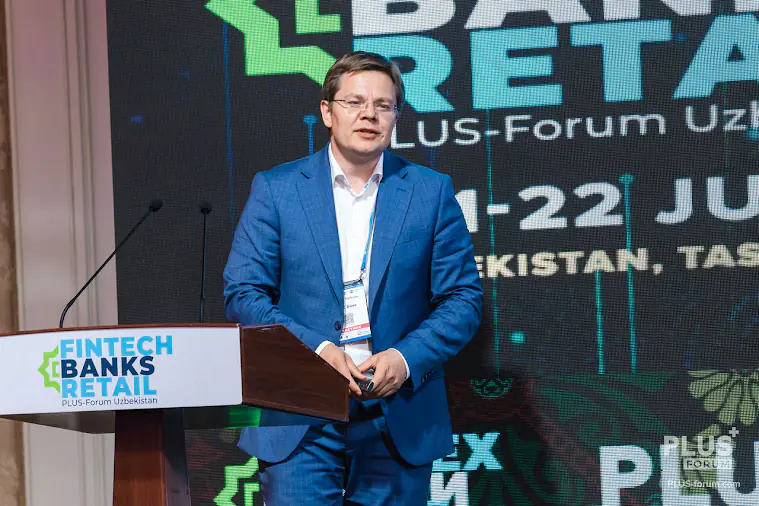
Session 4A focused on innovative solutions for digitalization, non-banking, and the challenges and opportunities in the era of digital transformation.
The second day of PLUS-Forum was no less eventful. Panel sessions addressed such issues as transformation of banking into Finance as a Service, Islamic finance, remote identification as a mandatory element of present-day society, big data, and many other topics.
Session 5. Transformation Process 2023. Turning banking into Finance as a Service
Eurasian Bank opens a subsidiary in Uzbekistan. This was announcement was made by Lyazzat Satieva, Chairman of the Management Board of Eurasian Bank. According to the expert, Eurasian Bank is now represented most of the regions of Kazakhstan, with the bank actively expanding internationally. At present, it is opening a subsidiary bank in Uzbekistan.
Referring to the Bank's success stories of the recent years, the speaker named a high level of digitalization of business processes, as well as synergies between retail and corporate business.
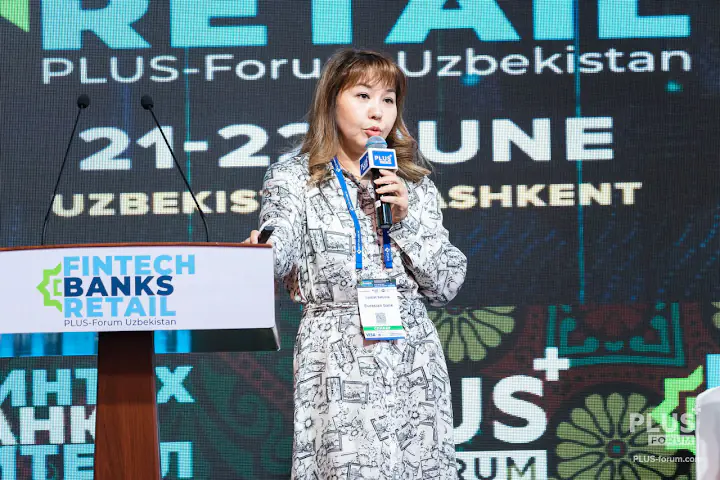
Talgat Ayupov, Chairman of the Management Board of Tenge Bank, reported on digitalization of banks. According to the expert, digitalization is a large-scale complex work, but it is exactly these efforts which have brought the bank to the third position in auto lending, as well as allowed it to achieve many other goals. Talgat Ayupov paid special attention to such areas as digital onboarding, card vending machines, online deposits and microloans, as well as installment loans, corresponding to all the requirements of Islamic finance. Notably, the opening of Tenge Market marketplace played a special role in the development of the bank's business.
The volume of liquidity of the bank's clients also continues to grow, which opens new prospects for all the parties. About 99% of the bank's microloans are issued online, the similar figure for loans is 70%.
Analyzing the prospects of banking, Mr. Ayupov singled out scoring 2.0, integration with GovTech, as well as the ongoing mergers and acquisitions of banks and fintech companies.
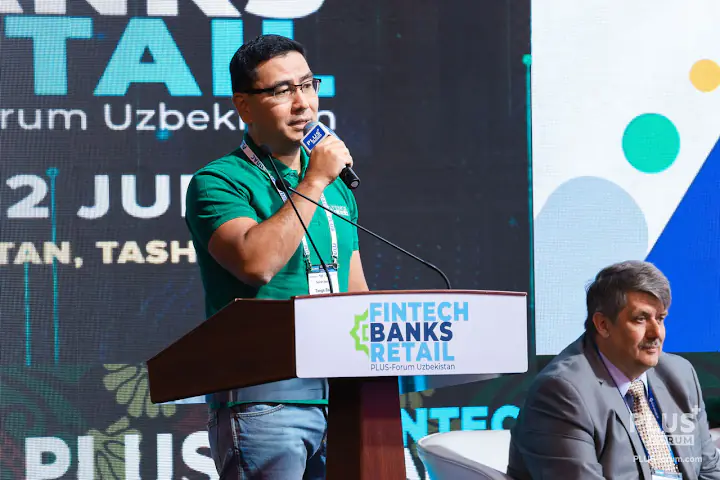
Shokhpur Gulturaev, Deputy Chairman of the Board, Uzpromstroybank (SQB) shared the experience of issuing the first real credit card in Uzbekistan. According to the expert, the bank had to upgrade its processing to launch a full-fledged credit card with a grace period, etc. The introduction of the WAY4 system took a year, but the result exceeded the expectations. A large transnational team was set up to implement the project.
Legislative support from the Central Bank of Uzbekistan, which launched a regulatory sandbox, also played a positive role in this process.
These initiatives are expected to facilitate the launch of subsequent credit card projects by other market participants.
To date the bank has received 30,000 applications for the new card, which is very good for the first month of the project launch. The plan is to increase the number of its holders up to 100 000.
PLUS-Forum “FinTech, Banks and Retail" paid special attention to Islamic banking and its needs for innovative technologies.
Session 5A. Islamic Finance and Islamic Banking in Central Asia. Current Status and Prospects
Khondamir Nusratkhujaev, Board Member of AAOIFI (Organization of Accounting and Auditing of Islamic Finance Institutions) spoke about the principles of Islamic economy and Islamic banking. He explained the differences between Islamic finance and the traditional profit-centered system.
The speaker perceives this system as a kind of detox of the modern financial economy - an alternative model, based on the sacredness of human dignity and property, which cannot be encroached upon and mustn’t be exploited. Same is true for unacceptability of taking advantage of the ignorance of one of the parties to the transaction. In this system, loan is to be interest-free and essentially represent certain aid, and the financial risks must be distributed in a fair manner. Such an approach provides for financial inclusiveness at any secular country, allowing different groups of people to coexist peacefully and basically, acts as a method of humanistic development. That is why, Islamic finance is developing all over the world, the speaker concluded.
Zokhid Alimov, Chairman of HAYOT BANK, has highlighted the demand for Islamic finance in Uzbekistan. He believes in great prospects of Islamic finance in Uzbekistan: with a population of 36 million people, 90% of them are Muslims. The attractiveness of Islamic finance is the transparency and ethics of the system, a prohibition on lending and fair distribution of risks and profits.
At present, Uzbekistan regulatory authorities are involved in elaboration of legislation that will form the legal ground for Islamic finance.
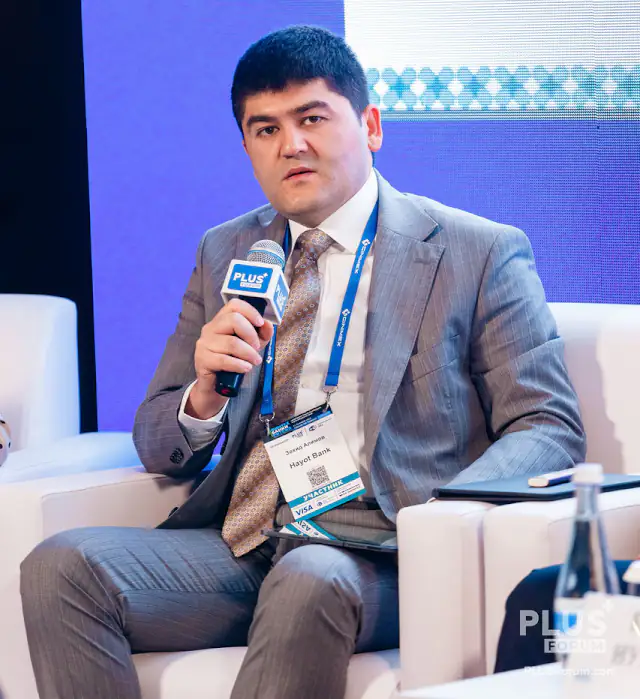
Islamic banking can attract up to $10 billion annually to Uzbekistan, noted Bakhrom Numonov, Chairman of the Board, Apex Bank. According to the expert, given that the majority of the population in the country are Muslims, the demand for Islamic financial products is going up. At the same time, the growing need for Islamic finance is increasing worldwide. In particular, the total assets of Islamic finance in the world now stands at nearly $4 trillion. Returning to the topic of Islamic finance development in Uzbekistan, the expert added that Islamic banking could bring up to $10 billion annually to Uzbekistan. As a matter of fact, about 20% of its citizens do not use the traditional loan system for religious reasons.
“At the moment, the country has provided regulatory sandboxes to test Islamic financial products. The ministries and the Central Bank are working on a respective legislative framework,” Mr. Numonov concluded.
Session 6. Remote Identification as an integral element of present-day society. Biometrics: from state services to banking and retail
Pavel Shust, international consultant on digital financial services, International Finance Corporation (IFC), Executive Director of Association of eMoney and Remittance Market Participants (AED), spoke about the role of infrastructure projects in business development and their potential for cross-border cooperation. The examples shown were the projects of fast (instant) payments systems and other initiatives of this scale.
According to the speaker, more and more countries are moving towards centralization and digital profile systems. At the same time, the concept of eIDAS 2.0 gets an additional incentive for implementation.
The expert named the main elements of infrastructure, including localized processing of card transactions (the so-called payment nationalism), credit history bureaus, e-invocating and a number of others.
Mr. Shust paid special attention to explore the reason why market participants in Central Asia should look towards regional integration.
Rustam Alavutdinov, Head of Partner Relations, Uzinfocom, shared his experience in implementing biometric identification projects, using the example of MyID service. According to the speaker, the solution is being prepared for further promotion in Kazakhstan and Kyrgyzstan, as well as in the Middle East region.
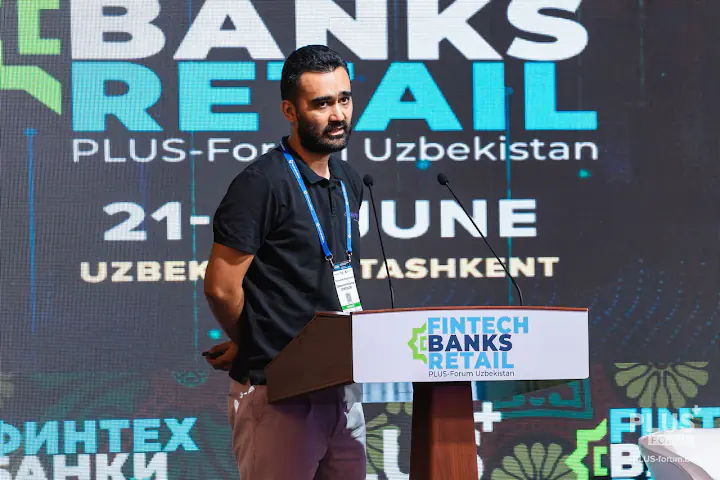
Is marriage by push-notification becoming a reality? Nariman Mukushev, Deputy Chairman at Halyk, told about this technology already in place in Kazakhstan. After the unification of all consumer services in 2007, the segment of state services was demonopolized. Since then, Halyk has worked in three directions, providing consumer services. In particular, SmartBridge - an information gateway that unites governmental and business data systems. It is a biometric identification project that got a boost during the pandemic, and an electronic data access control service that allows its user to manage his or her consent through an electronic office.
Among the five million services provided to people in 2023 are electronic filing of tax returns, which the system fills out, reissuance of driver's licenses with delivery of new ones, and booking tickets for a movie or a show. Along with these services, residents of Kazakhstan have already begun to use a matrimonial service via an electronic application. A man or woman (full equality) sends a request to the bride or groom, and the latter receives a push-notification informing him or her that a particular person wants to get married. All that remains is to press the "Agree" or "Reject" button.
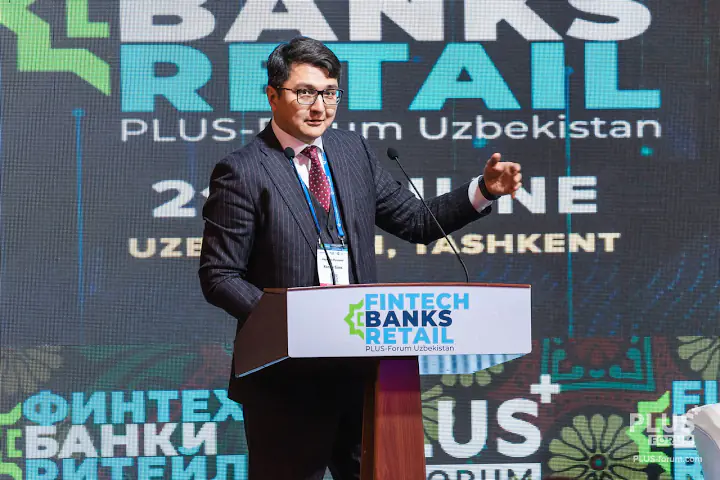
Khasanbek Umarov, Director at TAD Industries, presented the Liveness technology, which can “see” the face of a criminal through almost any protection. The technology allows facial recognition with high (over 90%) accuracy even in the dark, or through a motorcycle helmet, not to mention a mask. If the system cannot “see” the intruder in the available conditions, the intruder's silhouette recognition will be triggered, allowing him to be tracked through all available surveillance cameras to a location wh ere it will be possible to recognize his face.
Such a video analytics system will find wide application. In particular, in public security - ensuring the safety and comfort of passengers during transportation, tracing missing people and investigating crimes. In financial services, it will be fraud prevention and improvement of customer service. For production facilities, security and access control.
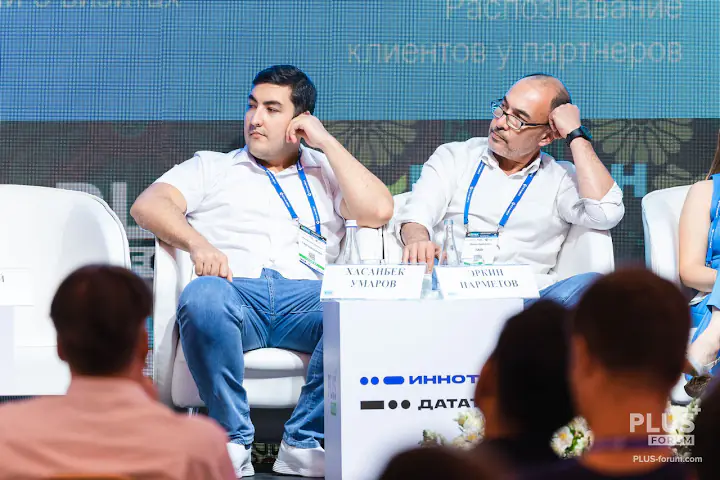
Session 6A. Crypto industry: status, trends and forecasts. Tokenization of assets, fintech platforms and distributed data ledges. Blockchain
Robert Courtnidge, independent consultant, reported on the topic “Future of money: how crypto will affect your business and why to prepare for a new era of Stablecoin and CBDC”.
Vyacheslav Pak, First Deputy Director, National Agency of Advanced Projects of the Republic of Uzbekistan, analyzed topical issues of crypto assets turnover regulation and prospects of the industry development in Uzbekistan.

Nargiza Miralimova, Director of CryptoMAG store, spoke about the development of crypto-asset turnover service providers in Uzbekistan using the example of her crypto-store.
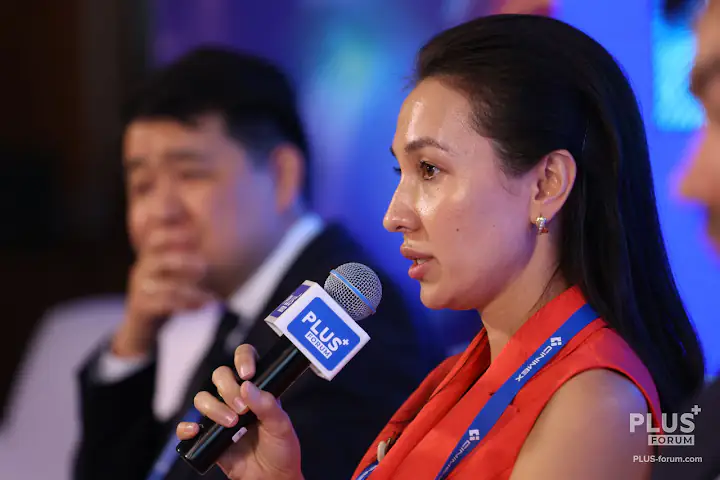
What is the role of banks in the crypto industry? The answer was given by Natalia Romenskaya, Advisor to the Chairman of the Board, Eurasian Bank. The speaker noted that states take different positions in relation to cryptocurrency: some say that it does not exist, others tend to allow everything, and then clamp down on opportunities; the third group follows the way of caution, not prohibiting crypto, but allowing it very carefully.
Despite this, nobody denies the significance of cryptocurrency. Suffice it to recall that when bitcoin first appeared, it was worth a dollar, now it is about 27 thousand dollars. About 700 transactions with crypto-assets are performed every day. At the moment, there are 216 crypto-exchanges around the world; over 15 countries have officially allowed cryptocurrency transactions. This suggests that any economy and any business have certain maturity stages.
"We are currently at the stage of legalization and regulation. This is a maturity phase that we need to go through, and all countries go through it differently," the speaker added.
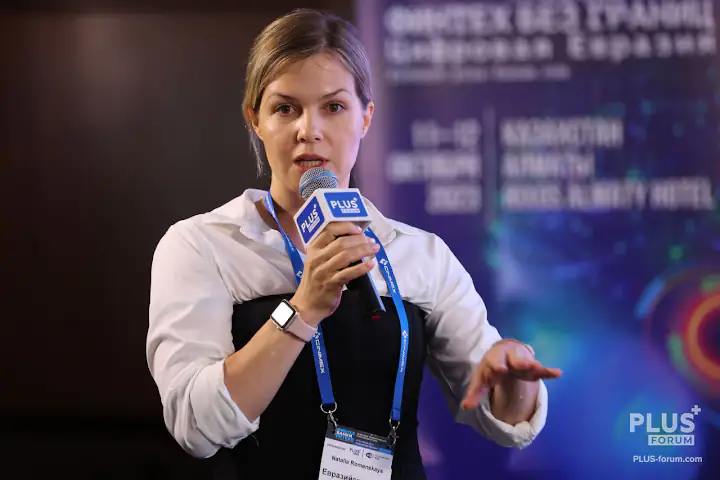
Islam Yerzhan, Head of the Center for Analysis and Research of the National Payment Corporation of Kazakhstan, shared his experience in studying the implementation and development of digital tenge. The speaker emphasized that the digital tenge is the third form of payment in addition to cash and non-cash. The digital tenge has obtained the features borrowed from cash and non-cash, but also its own ones. Mr. Yerzhan spoke in detail about the opportunities offered by digital tenge. He referred to them as means of preparation for new challenges of tokenization, DLT, DeFi, the ability to make cashless payments more accessible in locations with limited access to the Internet, providing the market with opportunities to establish new products and business models.
“Digital tenge is not a replacement, but an addition to the current system. It is a payment instrument, not some means of investment. That is, there is no interest accrued on the digital tenge. We chose this approach because we don't want to “kill” the existing financial system or create additional competition to banks. Therefore, we consider the digital tenge only as a means of payment,” the speaker added.
According to Mr. Yerzhan, digital tenge will accelerate cost of cross-border payments and make them cheaper. The technological feature of DT is related to the low cost of transactions, as well as faster time for its implementation, which will be more than relevant in cross-border payments.
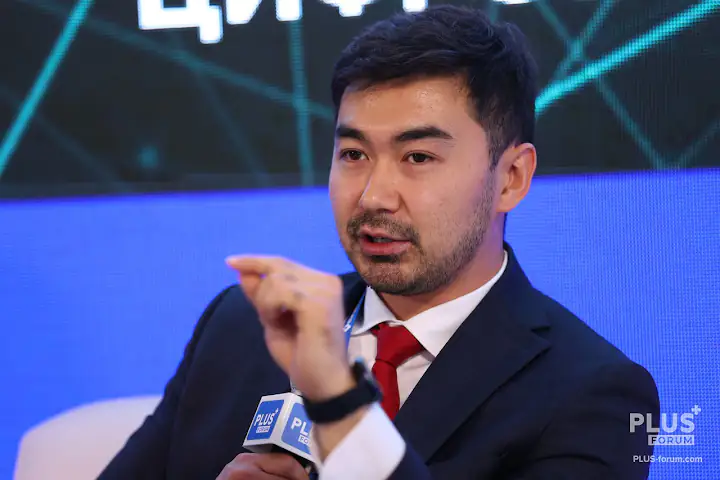
The first license for crypto-depository activity was issued in Uzbekistan, declared Kamronbek Mukhammadiev, Head of Special Regulatory Mode Sector for Crypto-Assets Circulation (“Regulatory Sandbox”) of the National Agency for Advanced Projects of Uzbekistan (NAAP). The speaker informed the audience in detail about how the performance of regulations on crypto assets circulation in Uzbekistan and the prospects of the industry. It was noted that NAAP is a single regulator on development of crypto assets circulation in the country; moreover, the use of crypto assets as a means of payment or payment receipt is currently prohibited in Uzbekistan.
The expert spoke about one of the innovations in NAAP structure – establishment of a specialized laboratory for testing and studying innovative technologies related to circulation of crypto assets. He also dwelled on the Special Regulatory Mode with respect to crypto assets, established by NAAP, which provides special organizational and legal conditions for entities that implement technologies in crypto assets circulation. In particular, it was noted that the participants of the “special mode” are exempt from all kinds of taxes and obligatory contributions, as well as customs duties (except for customs fees) for certain imported equipment, component parts, details, etc., which are not produced in Uzbekistan, and other benefits. Two projects are currently being implemented within this mode in the country:
- Implementation of NFT-certificates based on distributed data registry technology (blockchain) for names in the domain zone ".UZ" - "UZINFOCOM" LLC;
- Development and implementation of Cryptocard - JSCB “Kapitalbank”.
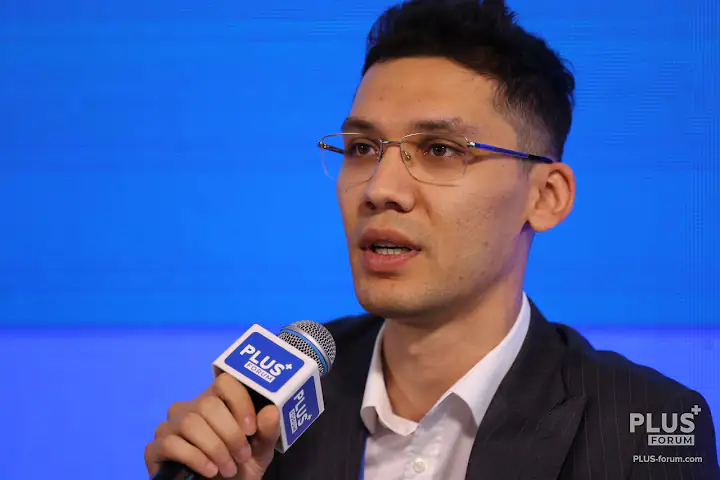
The speaker noted that the interest to crypto industry is growing in Uzbekistan. This is evidenced by the fact that the country had one licensed crypto exchange in 2021. In 2022, four crypto-stores and a crypto-depository appeared in the national crypto market. This added more than 6.5 billion Uzbek soms to the state budget and created more than 40 new jobs.
Session 7. Big Data: strategic capital of the 21st century?
Big data can help optimize ATM and collection businesses, suggests Maxim Ignatov, Head of Data and Technology Sales, 2GIS Management. His presentation was dedicated to the practical application of big data. Thus, based on data from the 2GIS application, the expert analyzed the statistics of requests from Tashkent residents related to banking services. As a result, places with high demand for ATMs were identified, including ATMs accessible within a 10-minutes’ walk or drive. Based on the data obtained, it is possible to objectively assess the provision of specific areas with ATMs, etc.
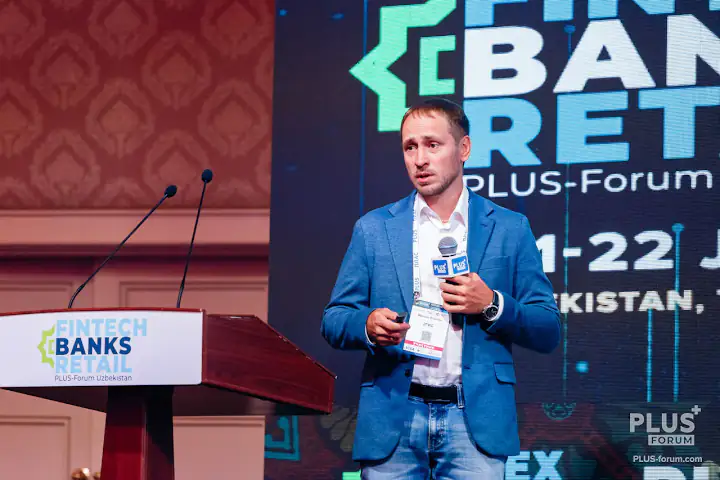
Another area of application of this approach is solutions for encashment and closed systems, which make it possible to deploy full-featured maps and 2GIS geo-analytics on customers' secure servers.
The current total audience of 2GIS service users amounts to 63 million people.
Open banking will commence in Kazakhstan in 2025, announced by Zhanar Samaeva, Managing Director, National Payment Corporation of Kazakhstan. She noted, that open data allows to change the very paradigm of banking.
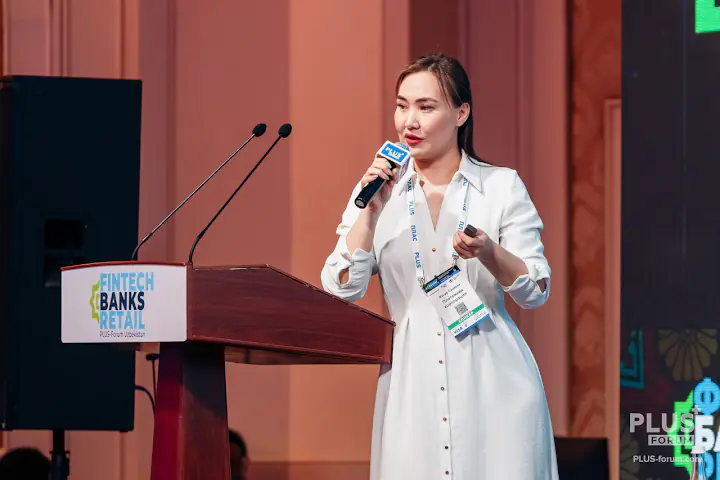
Analyzing the prospects of open banking in Kazakhstan, the expert noted a number of positive points, expanding opportunities for banking business and improving consumer experience.
In terms of the international practice of promoting open banking, Zhanar Samaeva made a point, that approximately 50 states that are now implementing this initiative one way or another, practice different approaches - both regulatory, when the regulator “passes down from above” all the initiatives, and independent, when every market participant decides for itself.
As of today, 12 banks are planning to participate in a similar pilot project in Kazakhstan.
Round table “Trade retail in Uzbekistan. Current state of e-Commerce. Key trends. New challenges and promising solutions”.
Sardor Kadyrov, GR Director at Wildberries, Uzbekistan, noted, that the need in sellers is tenfold. According to the expert, within the first hours after Wildberries started operations in Uzbekistan, there were hundreds of registrations, since many people came from Russia, others worked through a Russian legal entity.
“Today, more than two thousand sellers in Uzbekistan offer their products through Wildberries. This is not much for Uzbekistan. We need 17-20 thousand sellers who would place their products on the domestic and foreign markets,” Sardor Kadyrov emphasized.
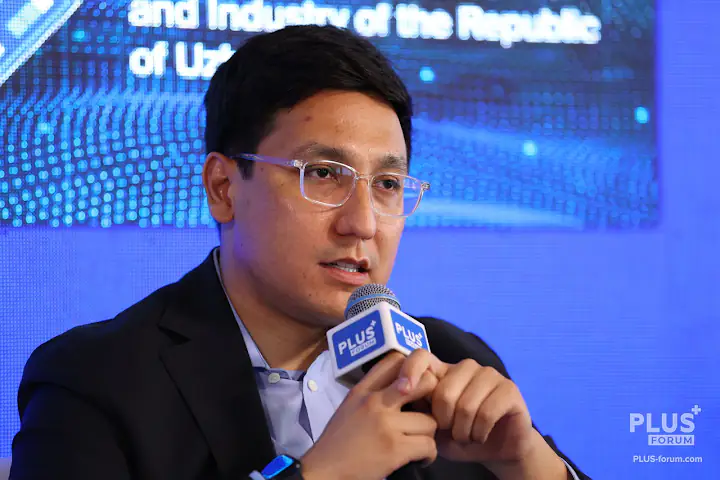
Alexey Ivanov, CX Lab, pointed out two main problems, not yet overcome by Uzbek marketplaces. The first is lack of transparency and the resulting unpredictability of purchases, when often the trade item is designed carelessly. For instance, under the photo of one teaspoon there is a set of nine teaspoons, but the buyer often learns about it only after the purchase.
The second problem is that buyers at marketplaces often have to take unnecessary actions: making an extra call to the courier to confirm the address, sending geodata not only to the operator, but also to the courier, and so on.
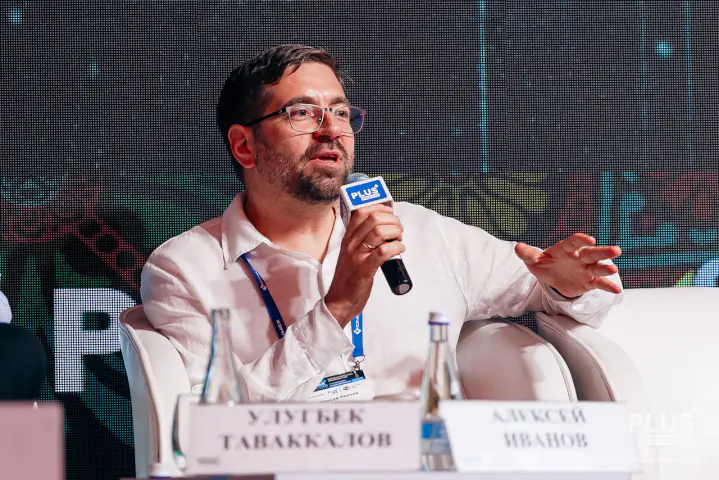
According to Alexey Ivanov, all these problems will be overcome, but for the time being a person who wants to sell goods online in Uzbekistan not always needs to use marketplaces, but should rather improve customer experience through the quality of own online sales, which always works on the seller's reputation.
One of the key events of PLUS-Forum in Tashkent was round table “Retail Banking Business”.
The issues discussed among the round table participants and the audience included:
1. Increasing consumer financial literacy.
2. Positioning and effective marketing.
3. Need to improve the consumer experience.
4. Introduction of effective centralized information services
5. Rejection of dumping in deposit and credit product segments.
6. Professional competences of bank managers and the need to improve them.
7. Efficient banking services for small and medium-size enterprises.
Ulugbek Tavakkalov, Deputy Chairman of the Board, Tenge Bank moderated the round table.
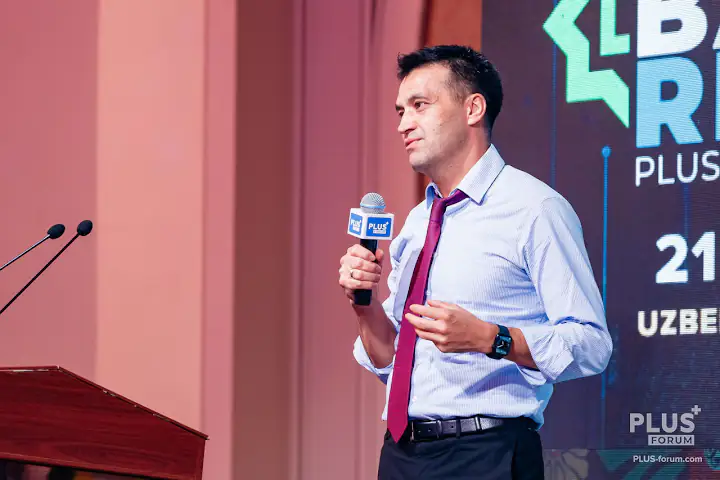
During the event, Alexey Ivanov, Founder and Head of Customer Experience Lab (Russia / Uzbekistan), shared the results of a comparative study of customer experience in car loans conducted at 10 banks in Uzbekistan.
Characteristically, 71.5% of the surveyed auto owners did not turn to credits to buy a car.
Such a high proportion of refused credit is not accidental: the study revealed a number of problems of inefficient interaction with the client, including paper coupons in an electronic queue, or a QR-code which led to... resources of some third parties.
Ivan Praudzin, Marketing Director, APEX BANK, answered a question about positioning and effective marketing. He made a point, that the bank's business is not always directly related to the products that its marketing promotes. Thus, this process features no consistency with all it implies.
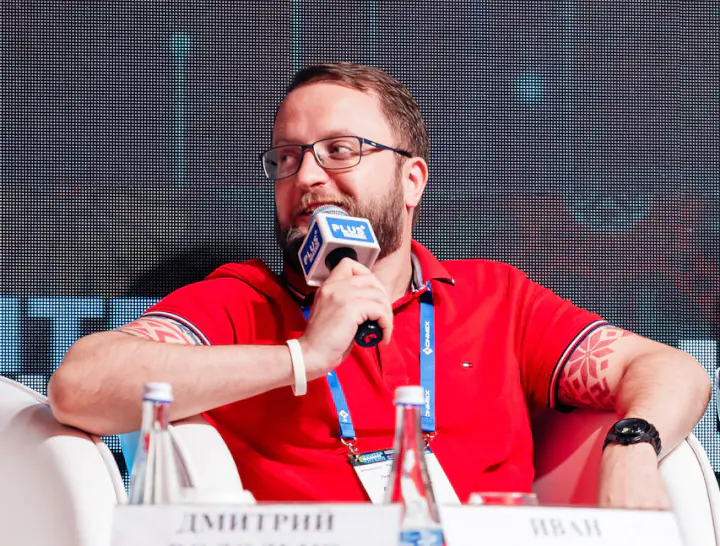
According to Azizbek Yusufov, Mirror Management Marketing Communications Agency managing partner, in the situation of the lack of qualified managers, the bank should build its service system so that it does not depend on specific specialists.

According to Elena Novoselova, FINIX, Yakov and Partners Director, client centricity is mainly a bank’s approach to its retail clients. First, the task is to build up a client base. Then, when its potential is exhausted, the bank takes a more personalized approach to the needs of its clients, which influences the complexity of its product line. A striking example is the combination of payroll and credit projects.
At the same time, the experience of Russian banks shows that effective communication with the client and effective marketing is impossible without large-scale, highly skilled teams responsible for these tasks.
Read more about the results of the round table in the forthcoming issue of PLUS Magazine.
In parallel, the Forum’s participants attended round table “Venture Capital Market Development Strategy in Uzbekistan”. The following issues were addressed:
- Who are the participants of a venture ecosystem and what is their role?
- Universities as a platform for nurturing startup projects
- Corporations as main customers of innovative projects and modernization processes
- International financial institutions: access to foreign financing markets.
The round table was moderated by Dilshod Zufarov, Chairman of UZVCA, Co-founder of UzAngels business club.
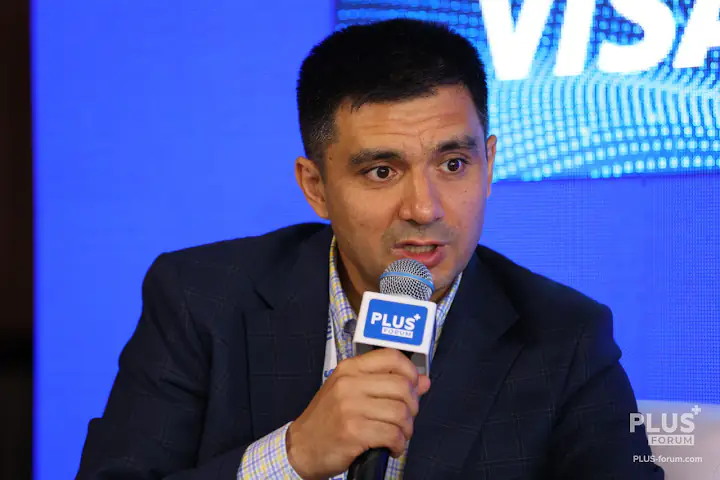
The discussion was joined by:
- Oksana Raim, Executive Partner of ICLUB in Asia
- Khurshida Igamberdiyeva, General Legal Advisor of INNO Technopark
- Alijon Ravshanov, Partner, Sturgeon Capital Ltd.
- Makhsud Yusupov, Chief Investment Officer, UzVC
- Bekzod Sobirov, Scout for Activat.vc, Lead Analyst at Uztelecom
Exposition
Forum’s framework also included a representative exhibition with more than 100 exhibitors from 31 countries, which demonstrated their novelties, technologies and services, as well as provided exhaustive information on specific business cases and plans for the near future.
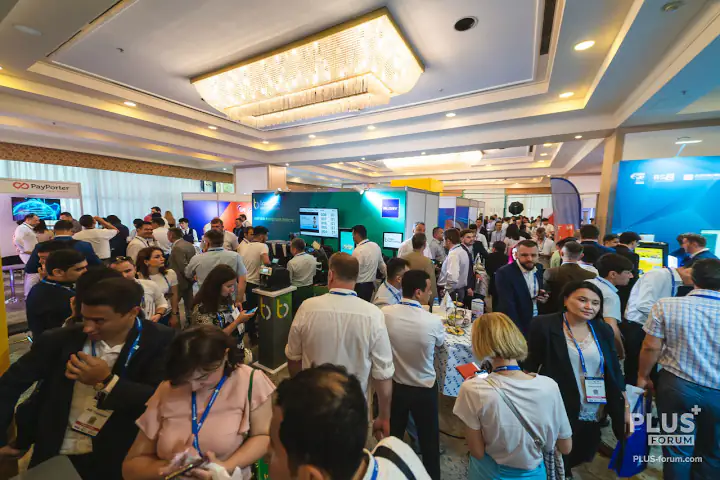
We remind you that the next PLUS-Forum 2023 called “Payment Business” and “Self-service banking, retail and EDI” will be held in Moscow on September, 13-14. Welcome to the coming event!
We are also waiting for you at PLUS-Forum “FinTech without Borders. Digital Eurasia” to be held in Almaty, Kazakhstan on October 11-12, 2023 and at PLUS-Forum “Retail Central Asia”, which will take place in Tashkent on November 22-23.
